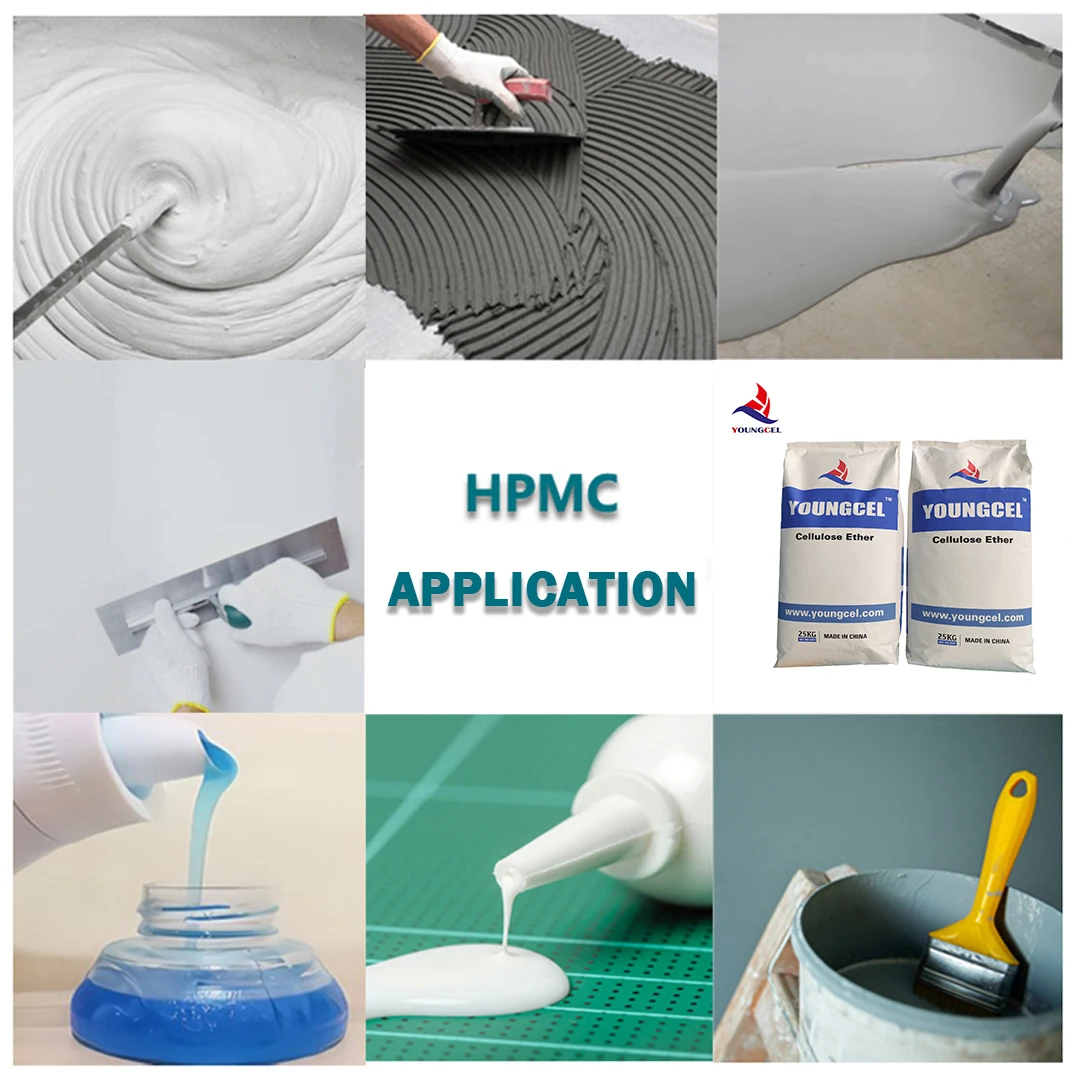Industrial Grade HPMC A Versatile Polymer for Multiple Applications
Hydroxypropyl methylcellulose (HPMC) is a cellulose ether that has gained significant attention across various industries due to its unique properties and versatility. Industrial grade HPMC, in particular, serves as an essential component in multiple applications, ranging from construction to pharmaceuticals and food processing. This article delves into the characteristics, applications, and benefits of industrial grade HPMC.
Understanding HPMC
HPMC is synthesized by modifying natural cellulose through hydroxypropylation and methylation processes. This modification enhances the solubility and performance of cellulose, allowing it to be utilized in diverse applications. Industrial grade HPMC possesses specific molecular weight and substitution levels, ensuring optimal functionality for industrial use. Its ability to form gels, thicken solutions, and stabilize emulsions makes it a valuable asset in many formulations.
Key Properties
One of the primary attributes of industrial grade HPMC is its water-solubility. It can dissolve in cold water to form a transparent and viscous solution, which is crucial for various industrial processes. Additionally, HPMC is known for its excellent film-forming properties, allowing it to create cohesive and stable films that maintain integrity under different environmental conditions.
HPMC’s thermal stability is another significant advantage. It remains stable under a wide range of temperatures, making it suitable for applications that involve heating or cooling processes. The compound is also non-ionic, which means it does not carry any charge. This property enhances its compatibility with other ingredients used in formulations, further broadening its applicability.
industri grade hpmc

Applications in Various Industries
1. Construction Industry In the construction sector, industrial grade HPMC is widely used as an additive in cement-based products such as mortars, plasters, and tile adhesives. It improves the workability and adhesion of these materials, allowing for better performance and durability. HPMC also helps control water retention, which is crucial for achieving optimal curing conditions.
2. Pharmaceuticals HPMC is a common excipient in the pharmaceutical industry. It is utilized as a binder, thickener, and stabilizer in tablet formulations. Its film-forming ability allows for controlled release properties, making it an ideal choice for sustained-release medications. Moreover, HPMC is recognized for its biocompatibility, making it suitable for various pharmaceutical applications.
3. Food Processing In the food industry, industrial grade HPMC serves as a thickening agent, emulsifier, and stabilizer. It is often used in food products to enhance texture and mouthfeel while also extending shelf life. HPMC is recognized as a food additive, with its safety approved by regulatory authorities, making it a popular choice in processed foods.
4. Personal Care Products HPMC is increasingly used in the formulation of personal care products such as shampoos, lotions, and creams. Its thickening and emulsifying properties enhance the texture and stability of these products. Furthermore, it provides a smooth application and helps maintain moisture, making it a sought-after ingredient in the cosmetic industry.
Conclusion
Industrial grade HPMC is a highly valued polymer that brings several benefits across various sectors. Its unique properties, including water solubility, thermal stability, and film-forming capabilities, make it an essential ingredient in construction, pharmaceuticals, food processing, and personal care products. As industries continue to explore innovative solutions, the demand for industrial grade HPMC is expected to grow, reaffirming its role as a versatile and indispensable material in modern applications.
-
Rdp Powder: Key Considerations for Wholesalers in the Building Materials IndustryNewsJul.08,2025
-
Key Considerations for Wholesalers: Navigating the World of Hpmc - Based ProductsNewsJul.08,2025
-
Hpmc Detergent: Key Considerations for WholesalersNewsJul.08,2025
-
Key Considerations for Wholesalers: China Hpmc For Tile Adhesive, Coating Additives, Concrete Additives, and MoreNewsJul.08,2025
-
Crucial Considerations for Wholesalers: Navigating the World of Construction MaterialsNewsJul.08,2025
-
Key Considerations for Wholesalers Sourcing Additive For Cement, Additive For Concrete, Additive For Putty from Additive Manufacturer Shijiazhuang Gaocheng District Yongfeng Cellulose Co., Ltd.NewsJul.08,2025




